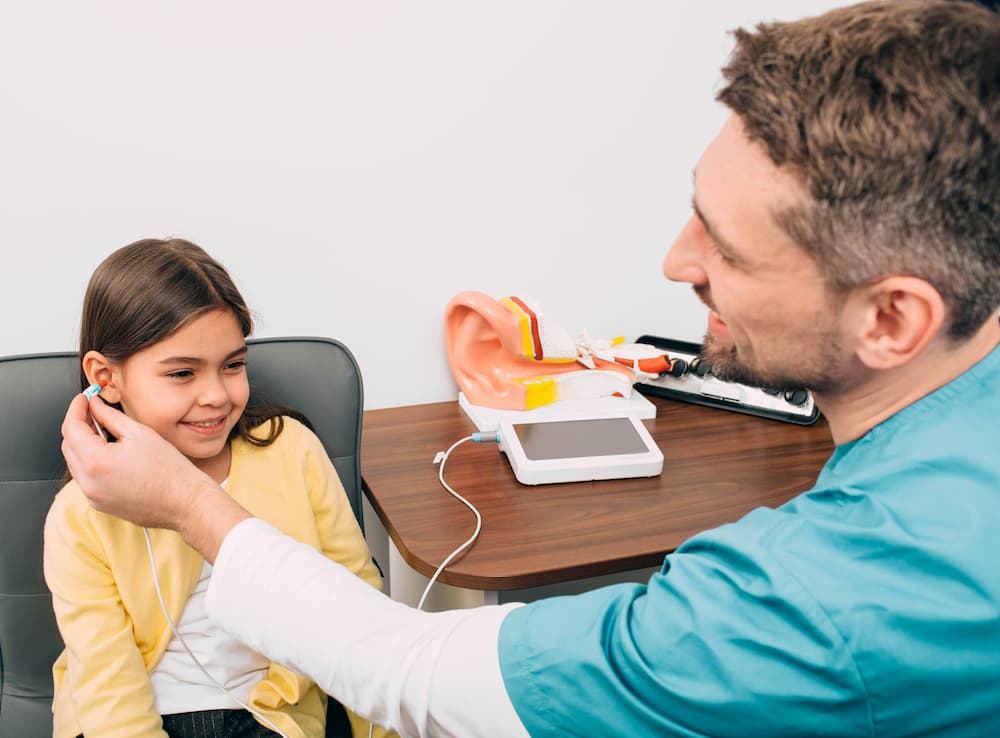What is an Audiologist?

In this day and age, there are medical specialists for many parts of your body and possible problems you may have. The variety is so expansive, and it’s no surprise when you hear of a medical specialist and have no idea what they treat. Audiologists often fall into this group of unknown or misunderstood specialties. About 20% of Americans suffer from some hearing loss, so your hearing health may depend on an audiologist.
An audiologist is a medical professional who specializes in diagnosing, managing, evaluating, and treating hearing related problems and disorders, including balance disorders. While the minimum educational requirement for practicing audiology is a master’s degree from a university with appropriate accreditation, many audiologists also obtain a doctorate in audiology. Just like many other healthcare professionals, audiologists must fulfill requirements for licensing at both the national and state levels, pass boards, an serve a residency or fellowship for one year.
Why Is An Audiologist Important?
A licensed audiologist can diagnose and treat almost all varieties of hearing loss among all age groups. They can also work to prevent hearing loss in individuals at risk of hearing disorders through preventative care and their involvement in research on understanding hearing disorders. If you or a loved one requires cochlear implants, an audiologist will be a critical part of the team overseeing this type of care. Other devices to improve listening experiences, like hearing aids, are often distributed by audiologists, which also ensures the fit to the patient and recommends specific models based on individual needs.
Though you may not realize it without experiencing hearing loss yourself, hearing dramatically impacts your overall quality of life. Vertigo, a sensation of motion while remaining still, is a balance issue originating in the inner ear. This condition is sometimes debilitating to those who suffer from it. Hearing things like ringing or buzzing in your head with no external sounds happening is called tinnitus and it is another potentially serious hearing condition that audiologists can help with. In some cases, hearing loss, vertigo, tinnitus, and other hearing-related issues may lead to emotional distress, anxiety, and depression.

Your ears are not an isolated part of your body. The health of your ears can impact the health of other parts of your body, and your overall health can also influence your hearing health. Individuals with diabetes or cardiovascular diseases may be at an increased risk of hearing loss and should have an audiologist helping them prevent that possibility. Audiologists are also important for chemotherapy patients, up to 80% of whom may suffer from hearing loss due to ototoxicity.
The group of people who most frequently need audiologists are senior citizens. It’s crucial to maintain hearing health with an audiologist also improves other areas of life for senior adults. For example, audiologists can help the elderly maintain better balance and prevent falls that could damage bones, organs, and harm important bodily functions.
Improve Your Hearing Health with Oliveira Audiology & Hearing Center
At Oliveira Audiology & Hearing Center, our goal is to help you improve or maintain your health and quality of life with our diagnostic and rehabilitation services. Noise conservation options and wax removal can also protect good hearing under potentially damaging conditions. Contact us today to book an appointment with a licensed audiologist and take the first step to ensure your hearing health impacts your life for the better.
Image Credits: Getty, jacoblund, peakSTOCK

